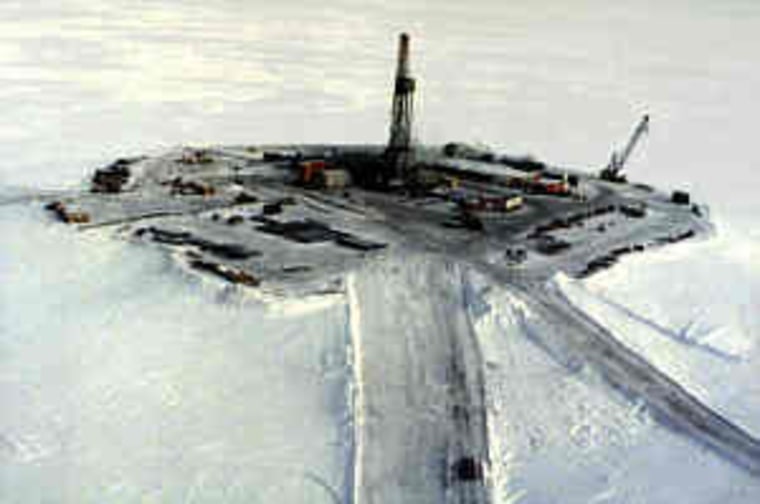The Royal Dutch/Shell Group, which has not been active in Alaska since the 1980s, bid over $44 million for rights to explore for oil and gas in the Beaufort Sea, mostly in an area offshore from the Arctic National Wildlife Refuge.
Shell Exploration and Production made the bids in a federal Minerals Management Service lease sale Wednesday that reaped a total of $47 million in bids for tracts in federal waters scattered over a wide swath of the Beaufort Sea.
The tracts that got the most attention from Shell stretched from waters off the yet-undeveloped Point Thomson unit west of the refuge to areas northeast of Kaktovik, an Inupiat Eskimo village on the eastern edge of the refuge.
Congress could soon approve drilling in the refuge, a move opposed by environmentalists who along with Inupiat Eskimos also oppose offshore arctic development because of possible risks to migrating whales and other wildlife.
“This is just an indication that in the current political climate, they are trying to lease every single acre in the arctic, regardless of the concerns of the North Slope community for subsistence,” said Eleanor Huffines, head of The Wilderness Society’s Alaska office.
Shell: No refuge connection
The attraction to the eastern Beaufort is not the location possibility of ANWR oil development but the known oil discoveries that were abandoned in the past for economic reasons, said Shell spokeswoman Kelly op de Weegh.
The bids were offered “solely on the merits of the lease sale without regard to whether or not ANWR will be opened in the future,” she added.
The offshore acreage leased by Shell includes discoveries called Hammerhead and Kuvlum, previously drilled by Unocal and Arco Alaska Inc.
Op de Weegh said improved technology, some of it honed by Shell in Sakhalin, Russia, and a better business climate, including high oil prices, might make those relatively remote discoveries economic.
“We believe that the volumes there really do have a chance to meet our investment criteria,” she said.
'Frontier acreage'
Ken Boyd, a former director of the Alaska Division of Oil and Gas who is now working as an industry consultant, agreed that the Shell bidding was probably motivated by the known offshore discoveries rather than recent moves to open ANWR to development.
“The politics might have something to do with it, but the geology doesn’t,” said Boyd, who attended the lease sale.
Those and other tracts remain challenging because of their distance from existing fields or pipeline, he said. “This still is very frontier acreage. You can’t call them satellite plays,” he said.
